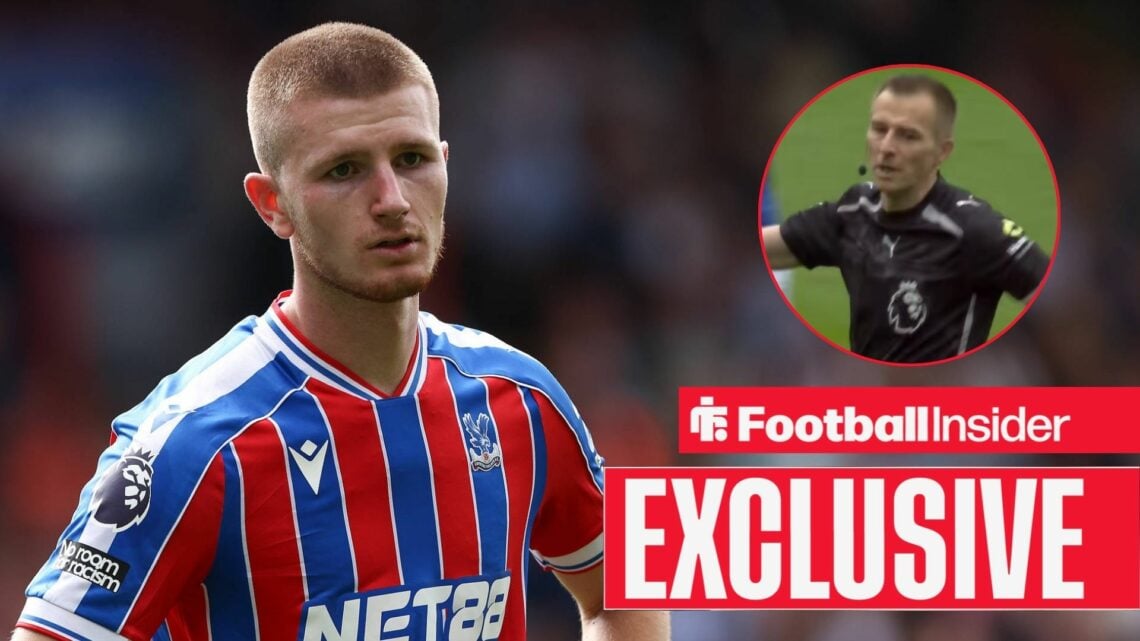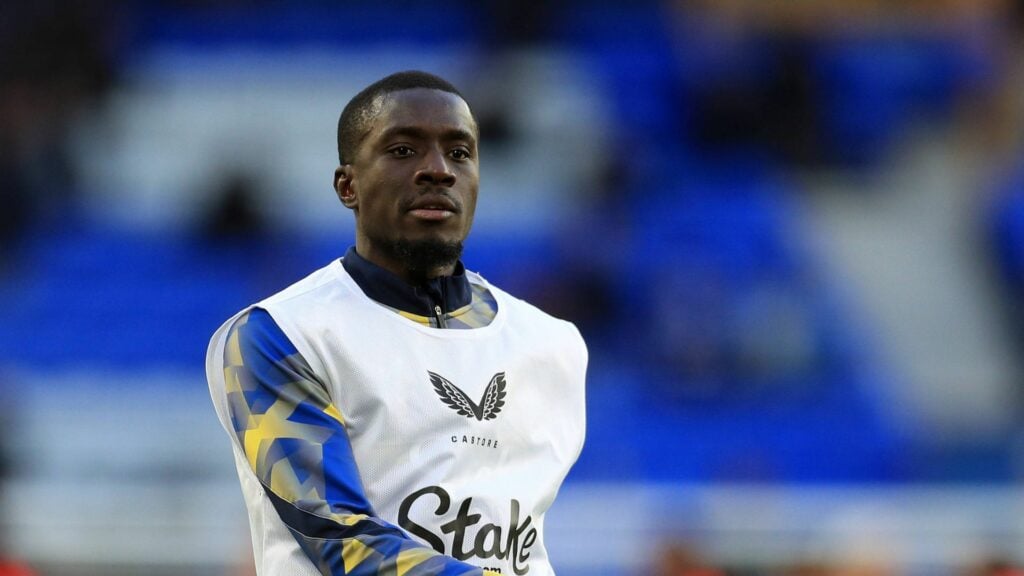
‘No way’ – Ex-PGMOL boss baffled by Adam Wharton controversy in Everton vs Crystal Palace
Michael Salisbury wrongly punished Adam Wharton during Crystal Palace’s shock defeat to Everton at the Hill Dickinson Stadium.
That is according to former PGMOL chief and ex-FIFA referee, Keith Hackett, who exclusively told Football Insider that the 21-year-old should never have picked up his first booking of the campaign on Sunday, 5 October.
Thomas Tuchel left Wharton out of the latest England squad, and that decision left the head coach red-faced as the young star bossed the midfield during the defeat to David Moyes‘ side.
Despite scoring the opener through Daniel Munoz, late goals from Iliman Ndiaye and Jack Grealish brought an end to Palace’s 19-game unbeaten run in dramatic fashion.
Adam Wharton cautioned for a simple tackle on Idrissa Gueye
Grealish made the all-important impact for Everton, but multiple of his teammates also made a nuisance of themselves against the Eagles, especially Idrissa Gueye.
In the 82nd minute, Wharton dispossessed the Senegal international with a well-timed tackle, though it did leave the latter clutching his leg on the floor after a clash with the talented midfielder.
Salisbury was quick to brandish the yellow card for Wharton, who was in utter disbelief at the decision, and now, rewatching replays of the incident, Hackett was almost lost for words.

The 21-year-old did go on to make four fouls throughout the game, which may have played into the referee’s decision, but the tackle that saw him booked was not believed to even be worthy of a free-kick by the supporters.
Michael Salisbury fails to ‘enhance refereeing’ with Wharton decision
Speaking exclusively to Football Insider about the decision, the former referee said: “Football is a contact sport, and that player has no intentions. It wasn’t reckless. It might have been careless, but that’s only a free-kick, not a yellow.
“There’s no way that player has been reckless. You can see the reaction of his opponent to the yellow card, smiling, almost with a degree of empathy and apology.
“It doesn’t enhance refereeing when the first route is giving a yellow card. If he thinks that’s borderline, surely you stop the play, meet the player, and ask for an improvement.”
